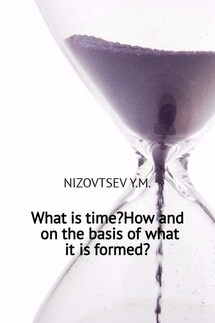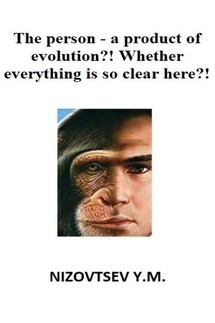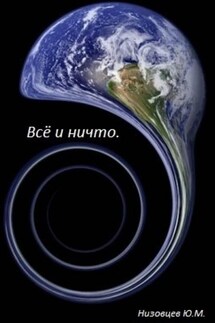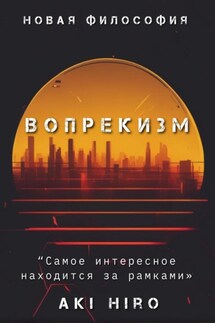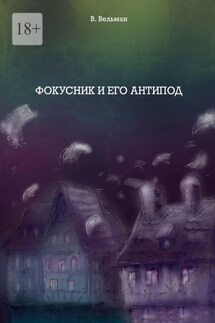Everything and nothingness - страница 13
Whatever it was, but Berkeley is correct in his assumption that without consciousness the world does not exist, it simply cannot be as beingness: in this case the world is already non-existence, nothingness.
Our own existence means that a contradiction is in the infinite and eternal Uniform, as a result of which it, remaining uniform, infinite and timeless, along with that is discretely in infinite number of finite worlds, acquiring time of existence.
Otherwise, Uniform would have remained in non-existence. This means that infinite and timeless Uniform potentially contains all, including at least aught the passive and aught the active which are able to exist as the projection of Uniform into time, i.e. in finite changes. Question consists only in the mechanism providing this duality: in Uniform potentially there is everything and along with that Uniform is nothingness, inasmuch separately it is non-existence. On the other hand, there is its twin, or a projection in which there is time. In other words, Creation (system of a world order) is the infinite timeless Uniform, and along with that – aught the finite, manifesting itself in time infinitely that we designate as beingness, or existing things in its last embodiment, perceived by us as the real.
The fact that some "mechanism" of manifestation of the world in the form known to us exists one can hardly deny, and most simple its realization is power of God, or power of the spirit.
Such conclusion did Berkeley, who considered possible existence of only the incorporeal, the spiritual.
However the incorporeal is non-being, which must stay in it owing to impossibility of emergence in this "Nothingness" of internal contradictions with their exit "outwards" – in beingness. We observe quite real picture of the world, and the things, which are in it, aren't incorporeal, on the one hand, at this, consciousness, on the other hand, interacting, in particular, with a body, despite own elusiveness, is quite effective and material force which is reflected in the psyche and transformation of sensations into constantly shifting picture of the world.
Husserl, investigating consciousness in its ratio with beingness, despite different fluctuations, ultimately, like Berkeley, acknowledged the possibility of existence of only consciousness even if the whole world will disappear: “Consequently, no real being, no being which is presented and legitimated in consciousness by appearances is necessary to the being of consciousness itself (in the broadest sense, the stream of mental processes)” [10, p. 110].
Avenarius and Mach prove that without consciousness there is no matter, and without matter there is no consciousness so how in experiment distinction between subject and object disappears. On this basis they deny existence out of the person of objective reality.
V. I. Lenin, as a materialist, has put forward against this approach the following objections.
“For every scientist who has not been led astray by professorial philosophy, as well as for every materialist, sensation is indeed the direct connection between consciousness and the external world; it is the transformation of the energy of external excitation into a state of consciousness. This transformation has been, and is, observed by each of us a million times on every hand. The sophism of idealist philosophy consist in the fact that is regards sensation as being not the connection between consciousness and the external world, but a fence, a wall, separated consciousness from the external world – not an image of the external phenomenon corresponding to the sensation, but as the “sole entity.” Avenarius gave but a slightly changed form to this old sophism, which had been already worn threadbare by Bishop Berkley. Since we do not yet know all the conditions of the connection we are constantly observing between sensation and matter organized in a definite way, let us therefore acknowledge the existence of sensation alone – that is the sophism of Avenarius reduces itself to” [1, chapter 1.1]; “The existence of matter does not depend on sensation. Matter is primary. Sensation, thought, consciousness are the supreme product of matter organized in a particular way” [1, chapter 1.2].
